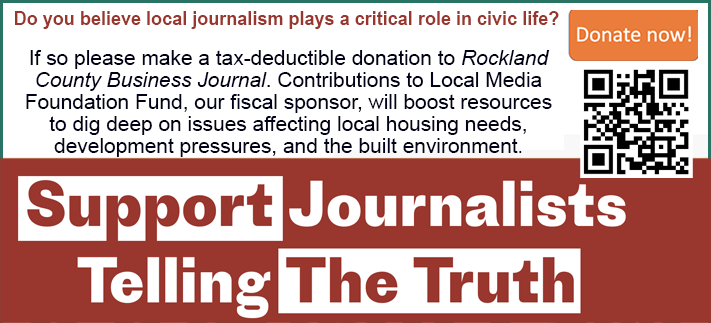|
RCBJ-Audible (Listen For Free)
|
Emphasis On Work Of Skilled & Seasoned Journalists Echoes In Jost Roast — And In RCBJ’s Philosophy To News Delivery
By Tina Traster
I attended Nerd Prom, aka the White House Correspondents’ Dinner, from the front row seat of my couch on Saturday night. I cringed during the “Red Carpet” pageantry, and squirmed through the seemingly endless painful drivel from CNN anchors who were as anxious as I was for the speeches to begin.
Ninety minutes in they did, but I’ll skip past the five journalism awards and Biden’s remarks.
I want to talk about the kernels of truth glinting in Colin Jost’s jousting and roasting both the President and the media. While he was tickling at times (of course that’s what the media has expended a lot of ink debating on Monday), what I appreciated most were his remarks about the importance of print journalism. Let me emphasize that: print journalism.
Google print journalism and here’s the first hit: the profession or practice of reporting about, photographing, or editing news stories for newspapers or magazines. It’s almost a quaint definition. Scroll down the search and you find this: Print journalism is a dynamic, fast paced, thinking-on-your feet profession. It is also a challenging field to break into.
Jost knows a little about this, as he began his career editing The Harvard Lampoon and worked as a cub reporter at the Staten Island Advance. He also has a unique and satirical window into the work of journalism by way of his decade-long stint as the co-anchor of Weekend Update on SNL (Saturday Night Live.)
Interestingly, the Correspondents’ Dinner host opened early with the fact when he worked at The Staten Island Advance, its daily circulation was 100,000. “The Washington Post would kill for that,” he quipped. He followed up by saying how difficult it is for print media to stay alive, joking that The New York Times should be called “Wordle” and that print media’s crosswords and games are the lifeblood of print news outlets.
Journalists’ jobs are not easy, he said. We’re “living at the end of traditional media; the gatekeepers are gone.” He joked about people getting their news from social media. “It’s the worst time in history to be a print journalist,” he said, with his dead pan, eyes-darting stare. “It’s the best time to be a courtroom sketch artist.”
Rockland County Business Journal is an online “print” publication, as you know; but we draw our training, experience, and the integrity Jost is talking about, from decades spent practicing serious print journalism. We know the difference between press releases and stories, the distinction between social media and journalism. And we know that you, dear reader, know that too.
Journalism is an endangered art form. The internet has clouded the essence of the profession; it has emboldened many well-intentioned but untrained people to give themselves the credentials for a job that requires time invested and skills honed.
Although we deliver the news electronically, we follow the guidelines and practices learned in print newsrooms, long before the internet disrupted, well, everything. On the upside, the internet has allowed seasoned reporters to fill news deserts, to bring good old-fashioned journalism to social media feeds and email inboxes, through online hyper-local news sites like RCBJ. But the work is only worth its salt when we rely on practices taught, learned, and polished over the course of time.
I believe Jost has a genuine admiration for the press – and a few of his zingers touched on the difference between “incredible” and “credible” media. He’s risen to great fame through his entertainment career, but he spoke about his early days in journalism with a wistful mistiness in his eyes – and I understand that. Staying the course at journalism is a long game; reporters build on a foundation of basic tenets and principles and intellectual muscle that serve as an anchor (no pun intended) for doing the work that some of us choose to do for a lifetime. It’s not a hobby; it’s not something you can do because “publishing” is available to anyone with a keyboard and an internet connection.
Jost, talking to a room filled with high-profile broadcast journalists and network bigwigs, repeatedly circled back to the work of print journalists. He understands the difference between journalism and entertainment.
In closing, as he said, “I would like to take a moment to recognize the PRINT journalists in the room. (see, there it was again, PRINT journalists.). “Your words speak truth to power. Your words bring light to the darkness.” He went on to make a joke about AI replacing journalists one day, but I worry more about immediate threats to the work journalists do at home and abroad. While those on the frontlines of war-torn countries deserve the greatest recognition, those of us who fight obstruction from local officials and other obstacles are also endeavoring to preserve journalism, and by way of that, our democracy.
Jost wrapped up by talking about America’s rare experiment with freedom and democracy.
“Journalists help protect that freedom and we can never forget it.”
If you believe that local journalism must play a greater role on these issues, please donate to the Rockland County Business Journal Reporting Project via Local Media Foundation. Contributions to this fund will help pay for the news resources needed to dig deep on issues affecting our local housing needs and built environment.
Donations can also be mailed directly to our Fiscal Sponsor. Make checks payable to the “Local Media Foundation” P.O. Box 85015, Chicago, IL 60689-5033 and note Rockland County Business Journal in the memo line. Contributions to this fund will help pay for the news resources needed to dig deep on issues affecting our local housing needs and built environment.











